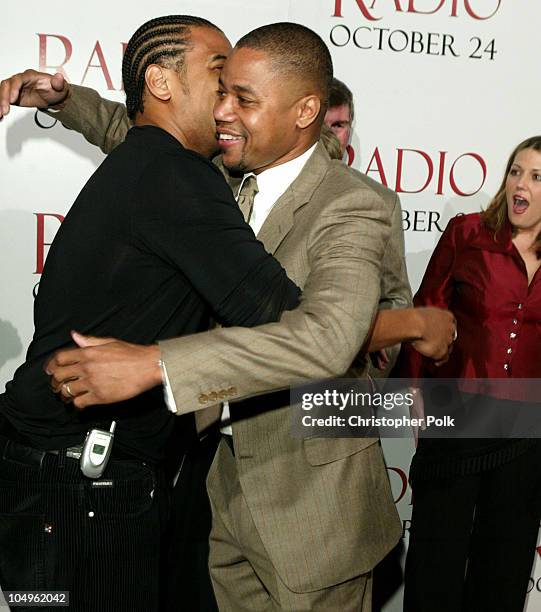Omar Gooding Reveals the REAL Reason He’s QUITTING Hollywood
Omar Gooding, known for his work in Hollywood, has made headlines recently for his shocking decision to quit the industry. In a candid interview, the actor revealed the real reason behind his departure and shared insights into the darker side of Hollywood.
Gooding, who comes from a famous family in entertainment, reflected on his career and the tough decisions that led him to walk away from the glitz and glamour of Tinseltown. He revealed that at the peak of his career, he was offered roles that didn’t align with his personal values. When Gooding refused to take on these questionable roles, his career began to stall.

According to Omar, Hollywood tried to push him into roles that went against his principles, particularly when it came to portraying black men in a feminized manner. Gooding made it clear that maintaining his masculinity and integrity was non-negotiable, even if it meant sacrificing his career.
“I’m the type of man that will not compromise,” Omar explained, emphasizing that he wasn’t willing to sacrifice his self-respect for a role. He pointed out how Hollywood often pushes black actors into roles that he believes undermine their masculinity.
Gooding’s refusal to participate in these types of roles became a defining moment for him in Hollywood. For him, it wasn’t just about rejecting certain roles—it was about standing up for his principles.
Gooding’s frustration with Hollywood also stems from personal struggles, including financial difficulties. Despite being successful, he found himself nearly broke during a time when his career should have been thriving.

He spoke about the disappointment of being repeatedly offered stereotypical roles, like the “brother” role, even though he was capable of much more. One of the biggest issues for Gooding was the industry’s tendency to pigeonhole black actors into certain types of roles, which he felt limited his potential.
He also discussed how roles that contradicted his values didn’t just affect his career—they affected how he saw himself. Omar revealed that he wasn’t comfortable with roles that required him to wear a dress or take on an effeminate persona.
He didn’t want to be known for a role that would have left him explaining for the rest of his life that it was just acting, and that it wasn’t a reflection of who he truly was.
Gooding’s decision to leave Hollywood wasn’t just about turning down roles—it was about rejecting a system that he felt didn’t value him as a person or an artist.

He spoke about how the industry often pressures actors to compromise their values for success, but he refused to be part of that system. Omar’s story has sparked discussions about the darker, hidden side of Hollywood, where actors are often faced with difficult choices that can affect their personal lives and careers.
In a broader sense, Gooding’s exit from Hollywood is a part of a larger conversation about the industry’s treatment of black actors. He isn’t the only one to speak out about Hollywood’s toxic practices. Other actors, including comedian Cat Williams and actor Christian Keys, have also opened up about similar struggles, revealing how the entertainment industry often places black actors in compromising positions.
Omar Gooding’s decision to leave Hollywood serves as a powerful reminder that fame and fortune in the entertainment industry often come at a great personal cost. For Gooding, staying true to himself and his values was worth more than any role or paycheck Hollywood could offer.


